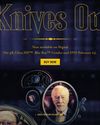Get Versatile With Variable Fonts
NET
|May 2019
Variable fonts offer practical and creative opportunities for web design. Mandy Michael explores how, when combined with preexisting technologies, they can be used to improve performance and usability while exploring creative solutions for storytelling, design and expression

You may have heard the joke about the two types of website, each with a slightly different layout that is represented all over the web. As web designers and developers we have often been limited by the technologies available to us. As someone who loves experimenting with CSS on the web, I like to push the boundaries of what we think is possible with design in code; it was because of this I started creating Photoshop-like text effects with just fonts and CSS. During my experiments I started incorporating variable fonts and it became clear to me that they present many unique opportunities that are simply not possible with standard font files. Today we’ll cover what variable fonts are, how we can use them and the creative opportunities they provide.
Variable fonts were first announced in 2016 and since then support for them on the web and in software has grown quickly. Google Chrome, Firefox, Microsoft Edge and Safari all provide support for variable fonts in their latest versions on the most recent operating systems. Given this level of support, there is every reason for developers to start experimenting and working with variable fonts right now.
What are variable fonts?
Variable fonts enable font designers to define type variations within the font itself, enabling one font file to act like multiple fonts. Standard fonts are grouped into font families that contain multiple separate font files each representing a different style, for example a light weight or a bold weight. Variable fonts contain all this same information in a single font file.
Diese Geschichte stammt aus der May 2019-Ausgabe von NET.
Abonnieren Sie Magzter GOLD, um auf Tausende kuratierter Premium-Geschichten und über 9.000 Zeitschriften und Zeitungen zuzugreifen.
Sie sind bereits Abonnent? Anmelden
WEITERE GESCHICHTEN VON NET

NET
Camille Gribbons
UX designer at Booking.com, Camille Gribbons reveals how she first got into the industry
7 mins
June 2020

NET
THE 5G UI REVOLUTION
Tris Tolliday describes his vision of a web UI catapulted forwards by 5G
3 mins
June 2020

NET
HOW TO SHOWCASE YOUR DEV SKILLS
Aude Barral shares 5 top tips for landing your dream developer job
3 mins
June 2020

NET
KNIVES OUT
Murder mystery film, Knives Out, grabbed everyone’s attention, and so did the fun website that promoted it. Oblio tells Tom May how it created its innovative 3D navigation
6 mins
June 2020

NET
HOW EMOTIONAL LABOUR HINDERS WOMEN IN TECH
Christine Brewis, head of digital marketing at Studio Graphene, discusses how gender parity in tech has changed over the last ten years, and what more can be done
5 mins
June 2020

NET
EDAN KWAN
He swapped life as a singer for a career making eye-popping digital visuals. The Lusion founder chats to Tom May about battling demons, winning awards and where digital advertising is heading
8 mins
June 2020

NET
ANDREW COULDWELL
The Brit in LA discusses his new book on design systems, Laying the Foundations
3 mins
June 2020

NET
Top 5 Tips For Ensuring Web Content Is Accessible For All
Merlyn Meredith outlines five top tips for ensuring web content is accessible for all
2 mins
May 2020

NET
WHAT DOES THE FUTURE HOLD FOR BROWSERS?
Nico Turco examines the state of play with browsers, whether developers should encourage diversity or monopoly and how Google fits into it all
6 mins
May 2020

NET
YEARS IN THE MAKING
Exclusively for net: The latest in a series of anonymous accounts of nightmare clients
3 mins
May 2020
Translate
Change font size

